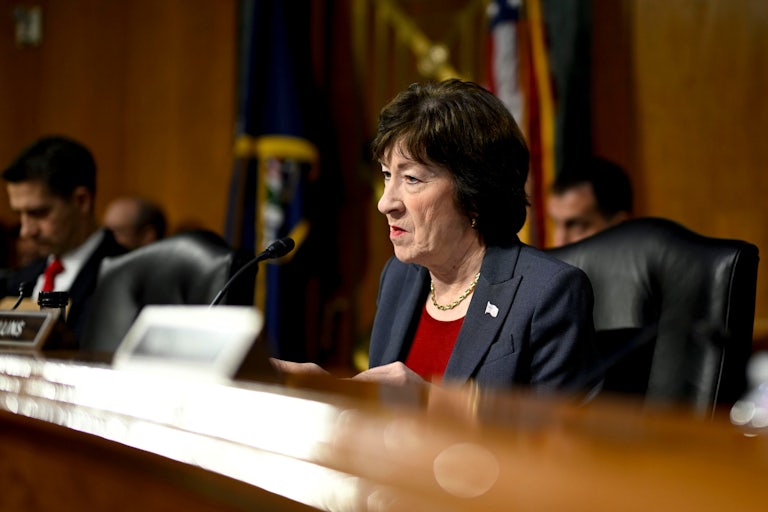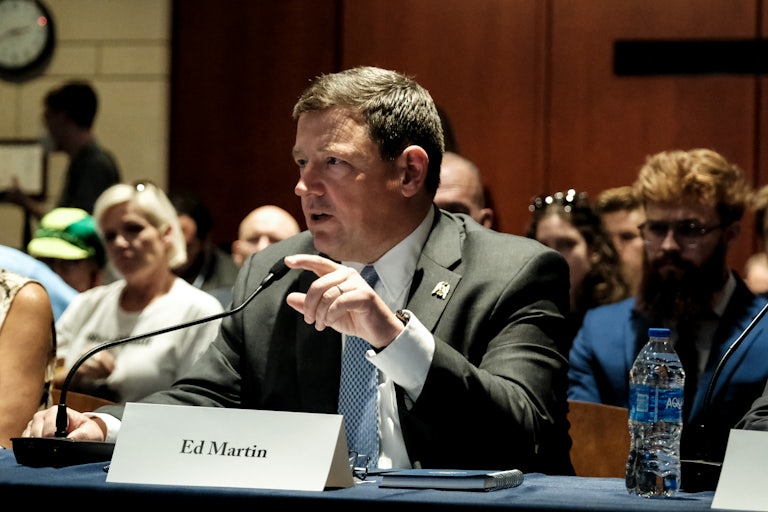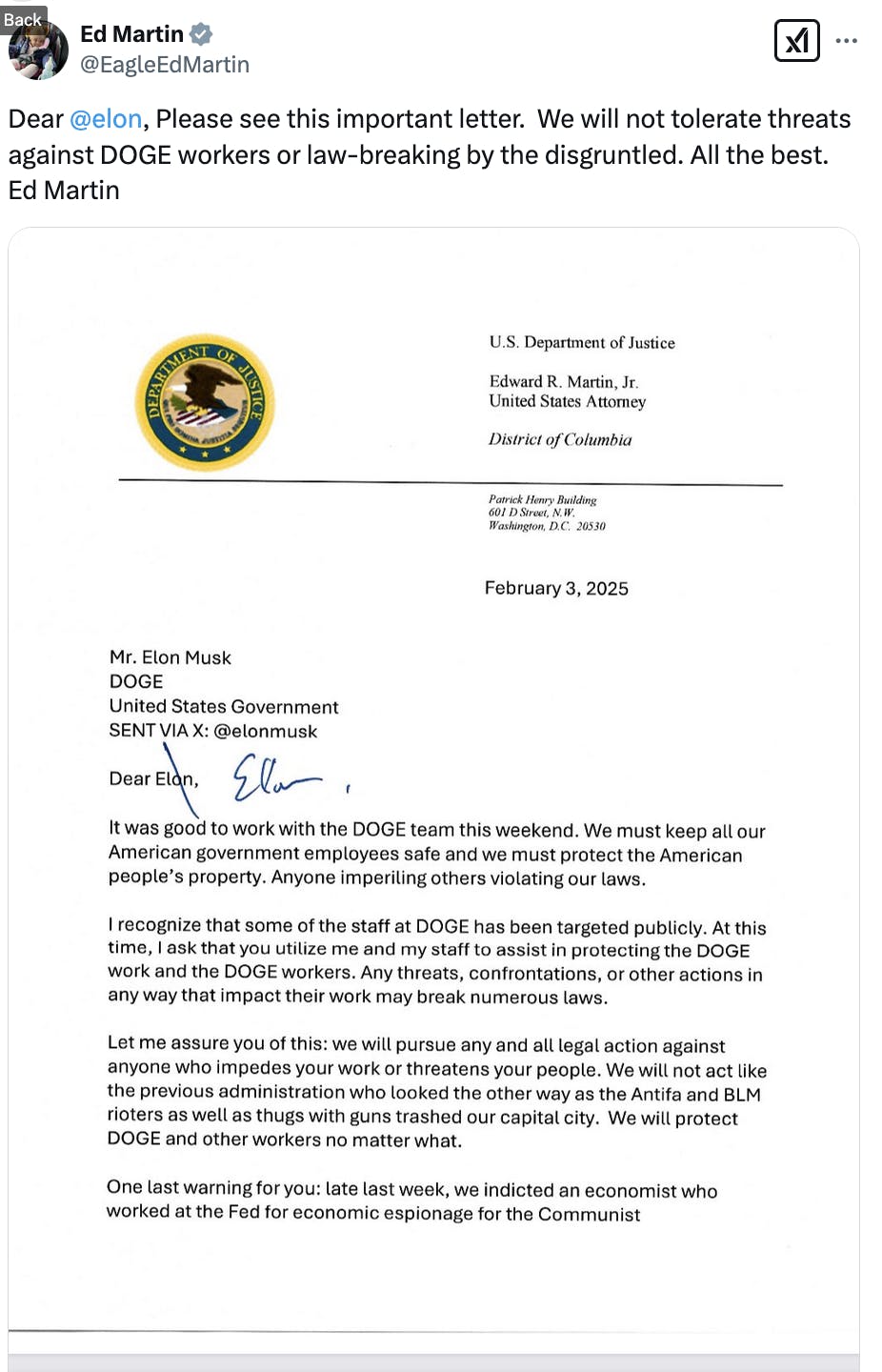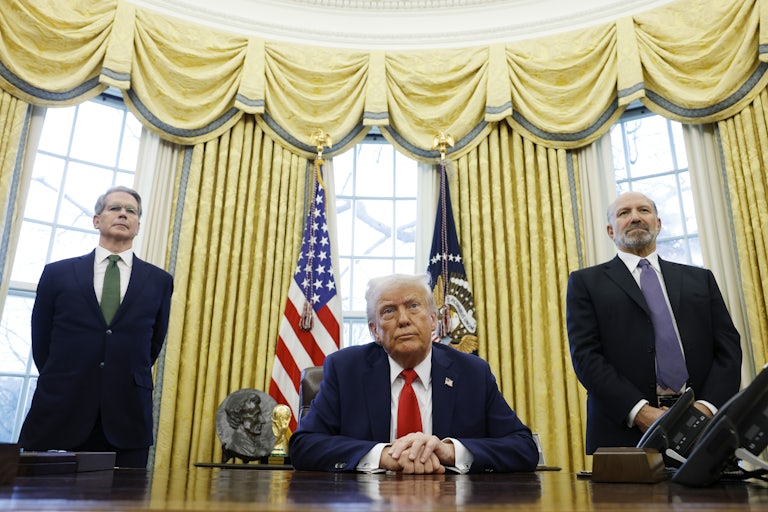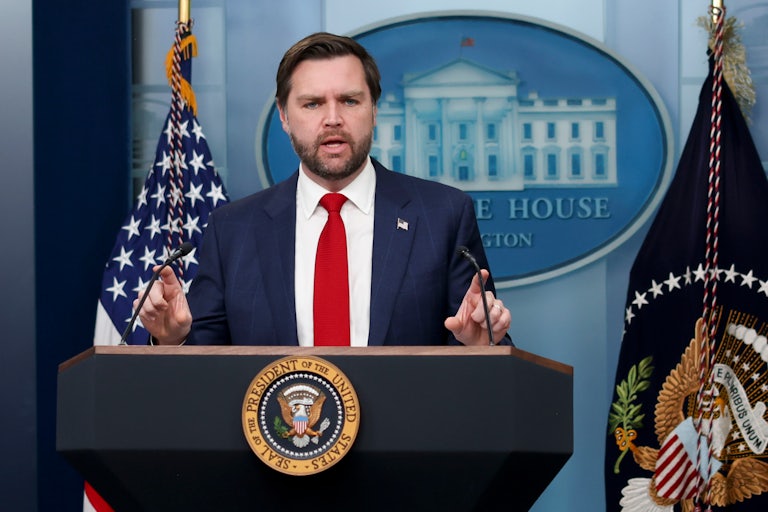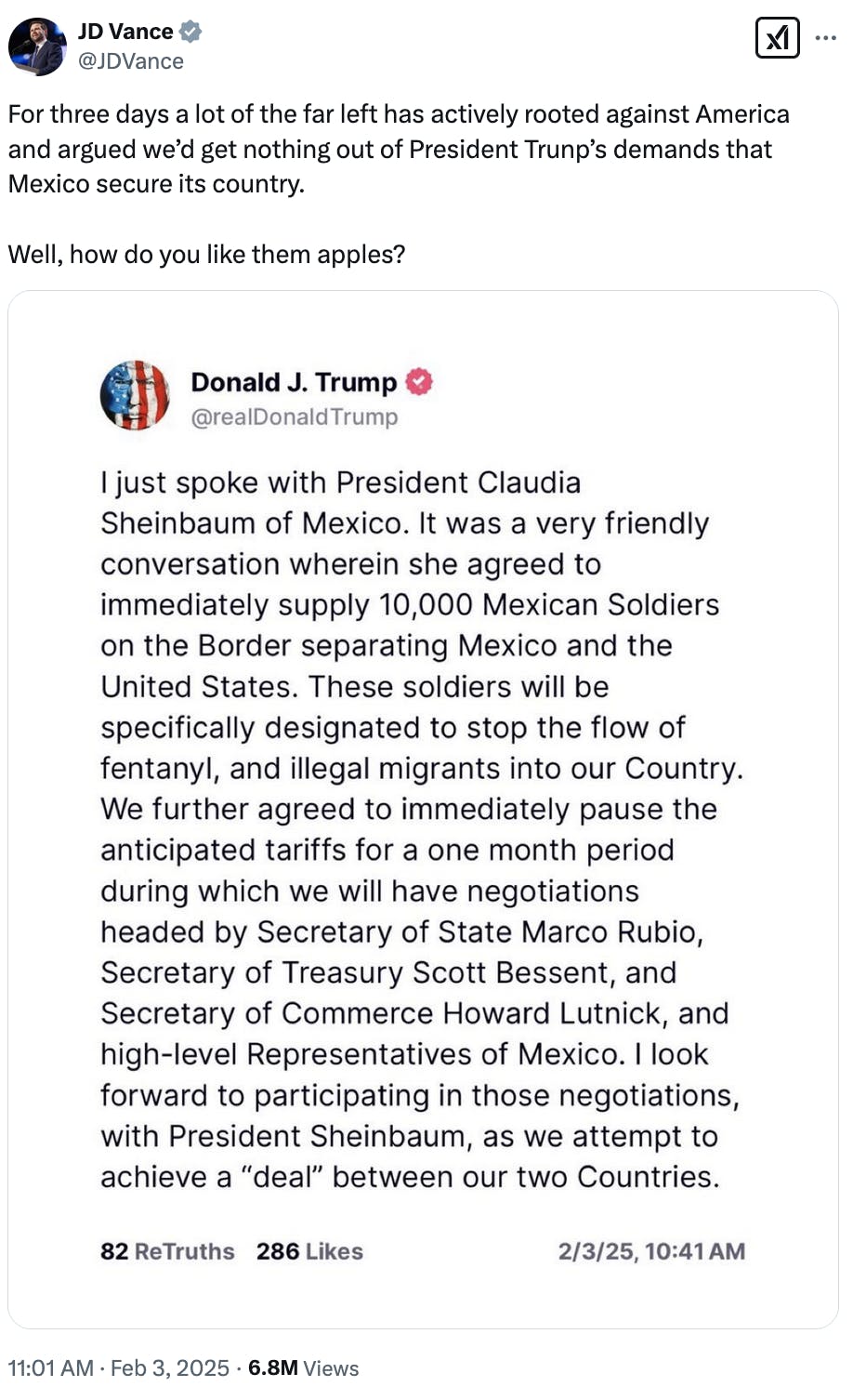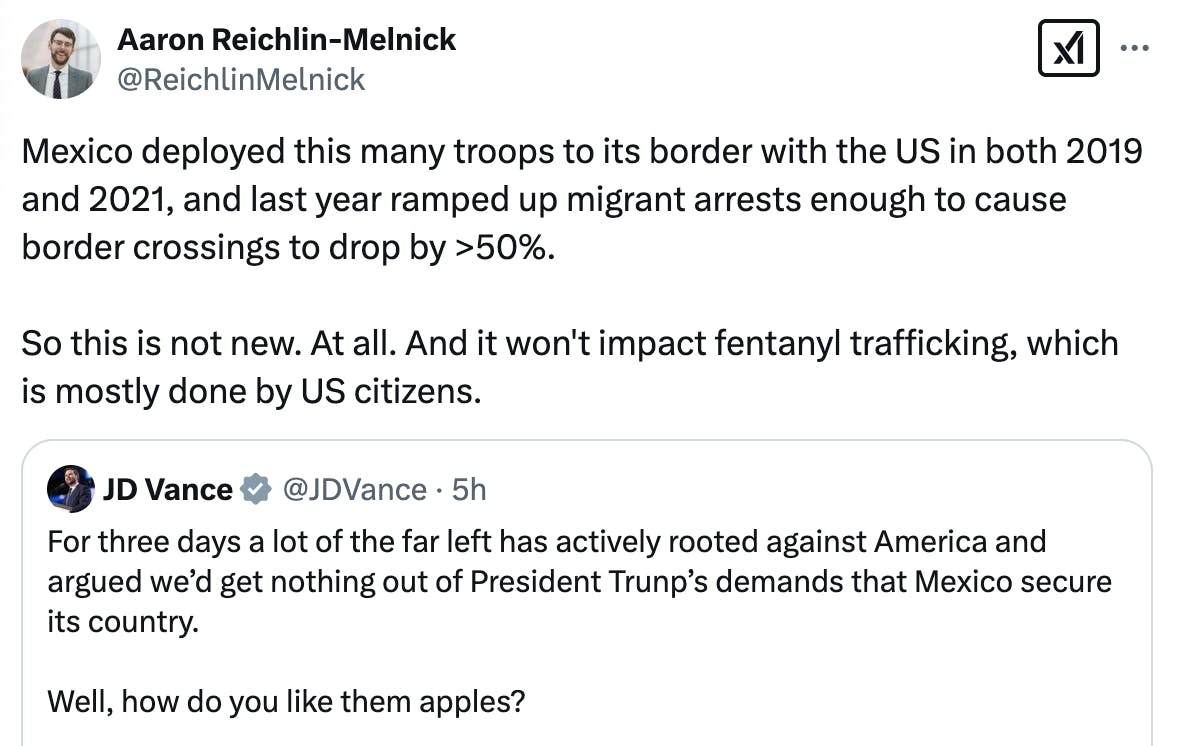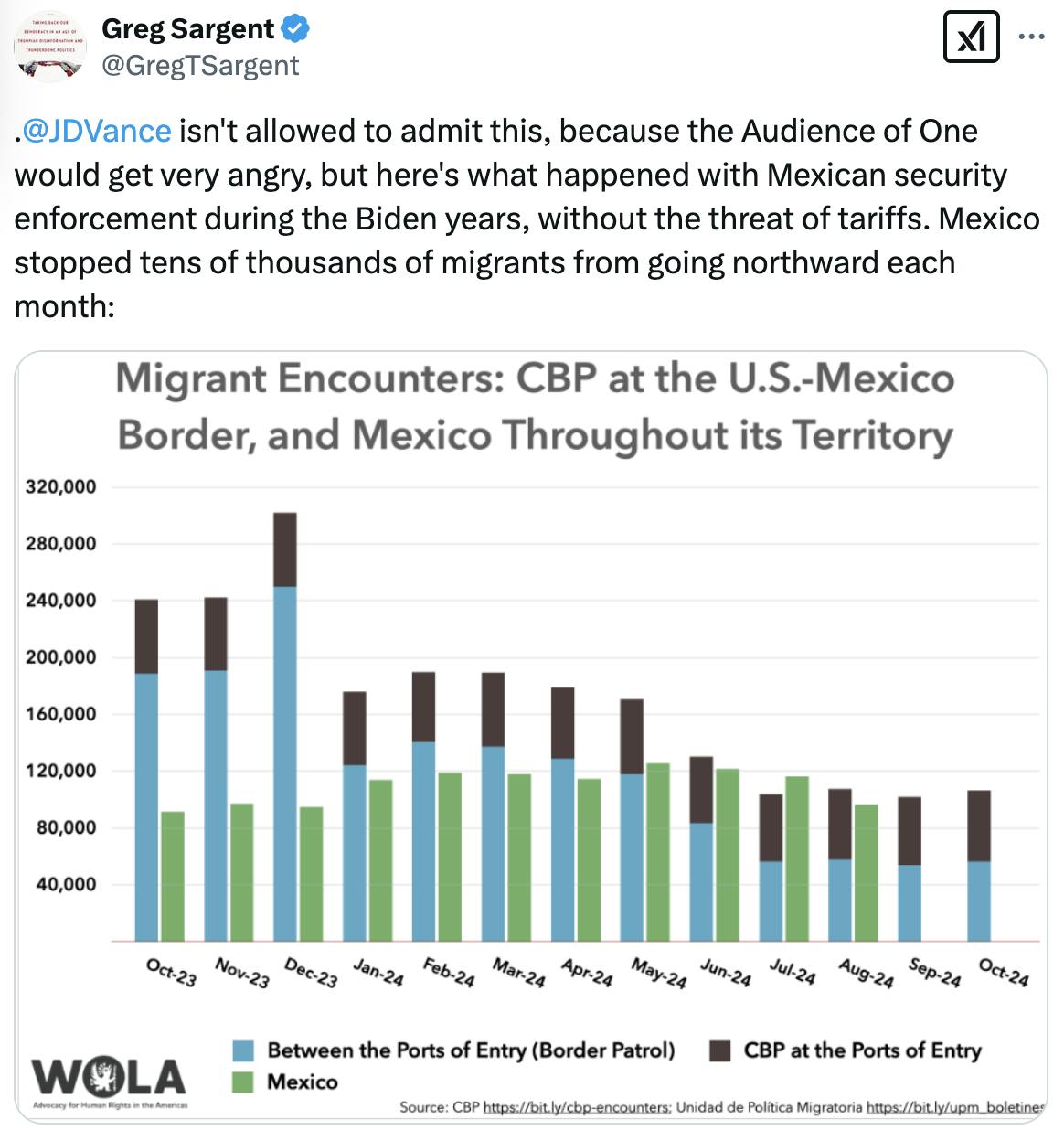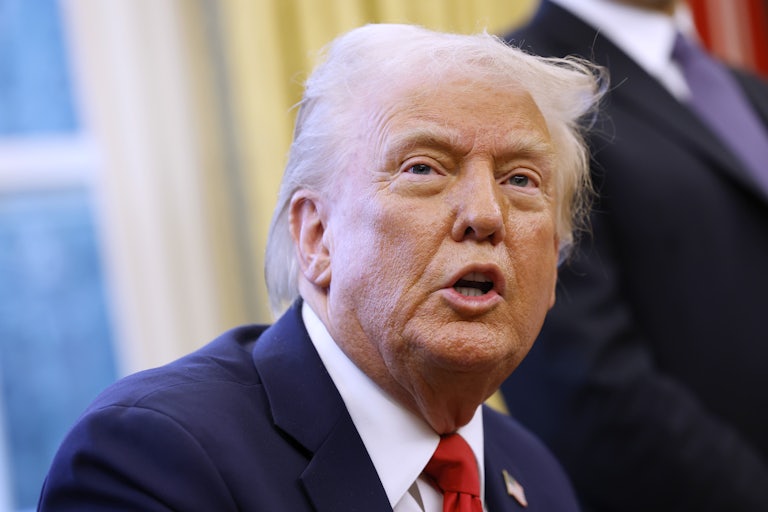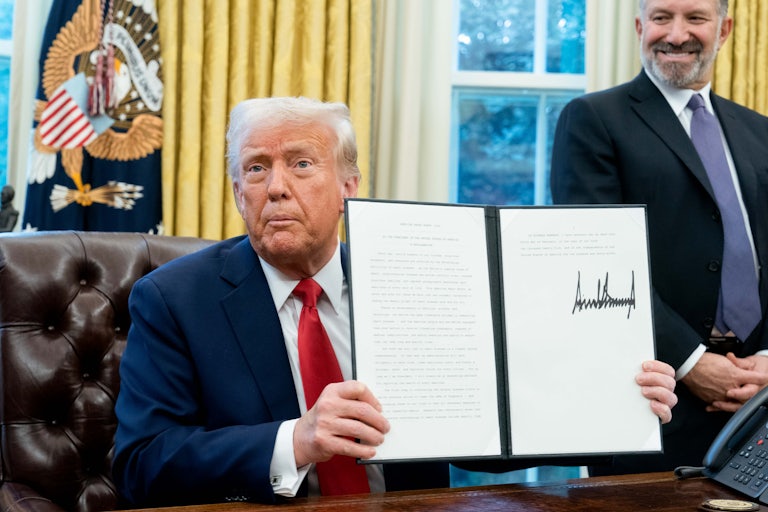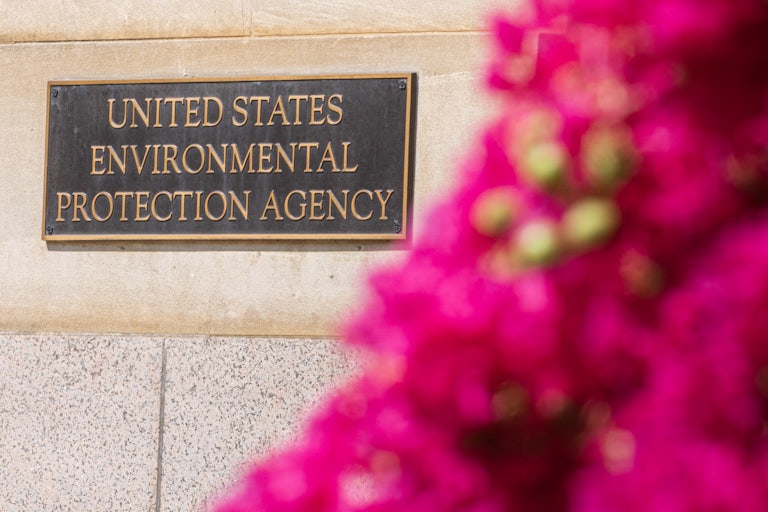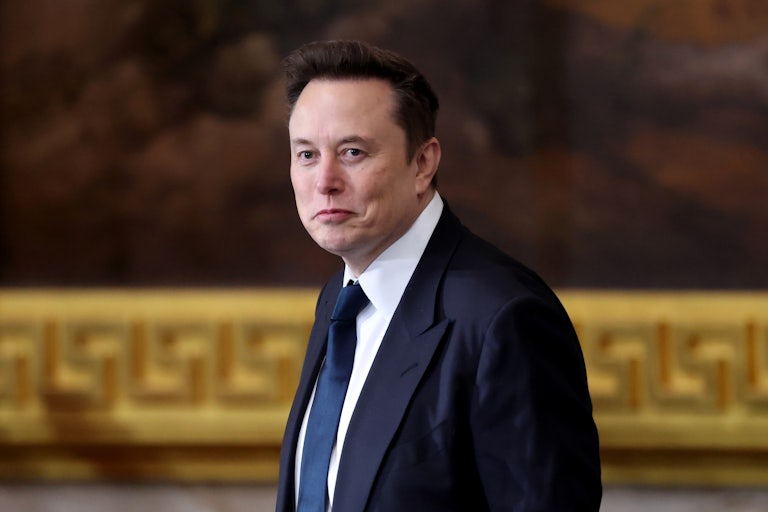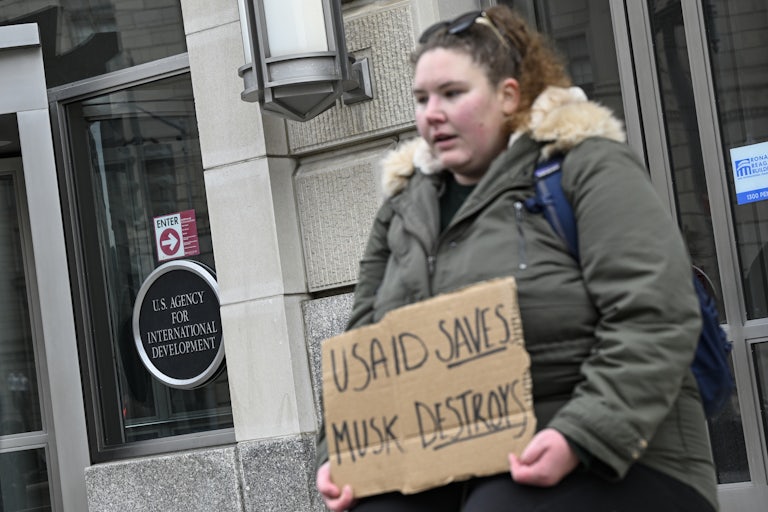Does Elon Musk Even Have Security Clearance to Access Sensitive Data?
Elon Musk is rooting around highly sensitive data, and he might not even have been properly vetted.

Elon Musk is now considered a “special government employee” by the White House. But exactly what kind of access that provides—and whether he has appropriate security clearance to access the nation’s most sensitive data—is still unclear to even top officials in the Trump administration.
CNN’s chief White House correspondent Kaitlan Collins pressed the issue during a briefing Monday, grilling White House press secretary Karoline Leavitt as to whether the world’s richest man had received a clearance or a background check to operate within the federal government.
“Can you confirm that Elon Musk is a special government employee?” Collins asked. “And what kind of security clearance does he have?”
“I can confirm he’s a special government employee,” Leavitt replied. “I can also confirm that he has abided by all applicable federal laws. As for his security clearance, I’m not sure, but I can check back with you.”
“Did he pass a background check, do you know?” Collins continued.
“I don’t know about the security clearance, but I can check,” Leavitt repeated.
Leavitt was also unaware as to whether Musk’s team—which consists of young people between the ages of 19 and 24—had received their own security clearances.
“I don’t, no, but again, I can check on that for you,” Leavitt said.
A special government employee is “anyone who works, or is expected to work, for the government for 130 days or less in a 365-day period,” according to the Justice Department.
Musk and his staffers at the Department of Government Efficiency, or DOGE, have had seemingly unfettered access to federal databases containing Social Security numbers, home addresses, medical histories, and other sensitive data.
Last week, Musk’s team was spotted installing a commercial email server into the Office of Personnel Management, in what many considered to be a massive security risk. The server gave the uncleared team potential access to onboarding, job performance reviews, and government employee health care details, which could violate HIPAA laws.
“China and Russia are literally trying to hack us every day, and we just gave all this data over to somebody that’s not been properly vetted,” an OPM staffer told the substack Musk Watch on Monday.
“What [Musk is] doing will put so many government employees at risk. It’s not at all what the office is intended for,” a former OPM director told the digital publication. “I just can’t believe what I’m seeing.”
